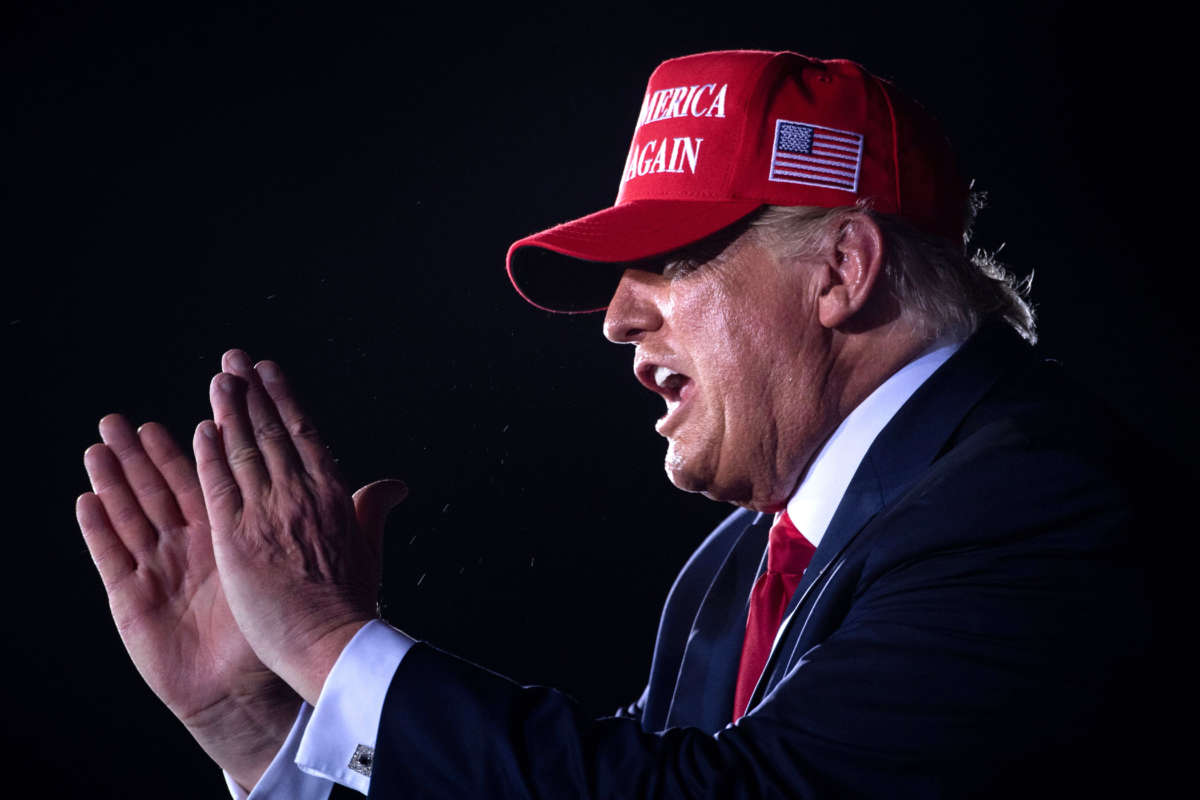In June 2007, former Vice President Dick Cheney — already no stranger to wantonly abusing his power — became the undisputed World Heavyweight Champion of Chutzpah when he informed the National Archives they had no rights to his office’s paperwork because the vice president was not part of the executive branch. Because he had that side gig as Senate president, he claimed he was therefore part of the legislative branch, and not subject to the executive-specific laws the Archives was trying to fulfill.
Take a second with that; it’s a bit to encompass. Constitutional scholars of every stripe blanched at the very notion… and it gets better. Rather than comply when pressed, Cheney’s staffers over in the Old Executive Office Building tried to abolish the Information Security Oversight Office, the National Archives division tasked with running Cheney’s papers to ground. When informed of Cheney’s highly unusual clash, the recently deceased Sen. Harry Reid was heard to quip, “I always thought that he was president of this administration.”
Cheney enjoyed a commendable 14-year run with the title, but has officially been toppled by the only man in the U.S. shameless enough to pull it off: former President Donald Trump. Yesterday, Trump’s crackerjack-box legal team asked the Supreme Court to block the release of documents for the House select committee investigating the January 6 Capitol attack. The reason? The committee might actually discover Trump and his people did something wrong. Right? Beat that with a stick.
Specific to Trump’s awe-inspiring legal complaint is an interview given to The Washington Post by committee Chairman Bennie Thompson. During the interview, Thompson made the following remarks which were subsequently red-flagged by Trump’s lawyers and sent to the Supreme Court: “That dereliction of duty causes us real concern. And one of those concerns is that whether or not it was intentional, and whether or not that lack of attention for that longer period of time, would warrant a referral.”
“The Washington Post has confirmed what was already apparent — the Committee is indeed seeking any excuse to refer a political rival for criminal charges,” wrote Trump attorney Jesse Binnall, “and they are using this investigation to do so.” According to the Post, “Binnall said the committee is acting as ‘an inquisitorial tribunal seeking evidence of criminal activity,’ which he said is ‘outside of any of Congress’s legislative powers.’”
At the core of Trump’s argument is the claim that the committee is not vested with the power to prosecute crimes, and that the actions of the committee serve “no legitimate legislative purpose.” Absent that purpose, the committee has no standing to operate, and cannot prosecute crimes in any event.
Trump’s lawyers put this argument before the D.C. U.S. Circuit Court of Appeals recently, only to have that court serve it back to them like a Venus Williams backhand. “The mere prospect that misconduct might be exposed does not make the Committee’s request prosecutorial,” the court opined a month ago. “Missteps and misbehavior are common fodder for legislation.”
Furthermore, it is entirely within the purview of the committee to recommend proper legal steps be taken in the event they discover criminal misconduct. Everything else they do is investigatory, for informational purposes only. A criminal conduct referral is the only club they have in the bag, and if they do use it, duty to follow through will fall upon Attorney General Merrick Garland and the Department of Justice.
This is the sort of Legal Beagle-ing the Republican Party has agreed to pay for, to the tune of $1.6 million and counting. Of course it’s a delaying tactic on the part of Trump’s lawyers; they are hoping to run out the clock and see this committee’s work get flushed if and when the GOP re-takes the House in November, so every second spent in court on frivolous nonsense actually serves a real, if genuinely shabby purpose.
In any event, I’m sure Mr. Cheney is pleased. The title he held for so long is being well-represented.
